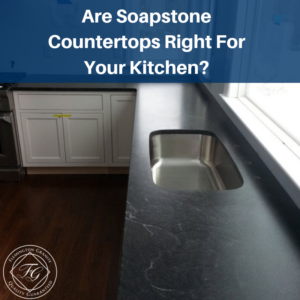
Granite is one of the hardest stones on Earth and creates some of the most durable countertops available. Granite is available in either two centimeters, which is about three-quarters of an inch, or three centimeters, about one-and-one-quarter inches. As long as your countertop is installed properly, the thickness should not impact durability.
Comparison of Thickness
A countertop that is three centimeters thick will be heavier than one that is only two centimeters, but both offer the same scratch, chip and burn resistance. One of the main differences between the two thicknesses is that the thinner granite will need more supports for overhangs and laminated edges than the thicker option.
Scratch and Chip Resistance
Both thicknesses offer outstanding scratch and chip resistance, a benefit that granite has over laminate or marble. Your kitchen knives will not cut granite, but the granite will dull your knives if you do not use a cutting board. The only substances that can cut granite are diamond or tungsten and both are used to cut granite into countertops. It is possible to chip your granite, but you would need to exert tremendous force to do so, such as striking it with a hammer.
Heat Resistance
Granite is extremely heat resistant and it will not be damaged if you place a hot pan directly from the stove on the surface. Hot liquids that are spilled on granite will also not damage the surface, so there is no worry that your counter will burn, bubble or melt.
Stain Resistance
If granite is sealed properly, it is fairly stain resistant. However, if it is unsealed, the stone is porous and it could absorb spilled substances. Although the structure will remain intact, the stain will mar the beauty of your counters. If it is properly sealed, the sealant will keep spills from seeping into the stone, reducing the chance of staining. It is still important to wipe spills quickly as some substances can leave discoloration. Most times, the discoloration can be removed with a baking soda paste. Mix baking soda with water for oil-based stains or hydrogen peroxide for water-based stains, cover and leave for a few hours before wiping with a damp rag.
Natural Fissures and Cracks
Granite is an igneous rock that was created when feldspar, quartz and mica were pressed together under the Earth to create on solid surface. This means that your countertop has tiny holes, known as pitting, within it. There are also natural fissures and cracks that were created when the rock formed. None of these indicate a structural problem with your countertop and our counter is not likely to crack under normal use.
If you are considering granite countertops for your kitchen or bath, contact Flemington Granite today. You can speak to a customer service representative by calling or filling out the easy online form.






